What would make South Dakota safer for the LGBTQ+ community? Not just policies alone.
Editor’s note: This is the sixth article in a series of six exploring South Dakota’s last decade of anti-LGBTQ+ legislation, “A decade of hate.”
South Dakota has a long way to go in terms of becoming more safe and inclusive for LGBTQ+ people.
That’s according to several policy trackers that compare state laws across the nation, and interviews with multiple LGBTQ+ and Two Spirit individuals by the Argus Leader.
As is evidenced by the last decade of anti-LGBTQ+ legislation introduced in the state, some legislators don’t have the appetite for bills on LGBTQ+ safety and inclusivity, and the lawmakers who do continue to see their attempts to make positive change fail time and again.
Sen. Reynold Nesiba (D-Sioux Falls) has sponsored multiple bills through the years commemorating and celebrating the state’s LGBTQ+ and Two Spirit community, which is estimated to be about 25,000 of the more than 900,000 residents of the state.
But his bills have all been pulled or disapproved by his colleagues because they’re viewed as too political, Nesiba said.
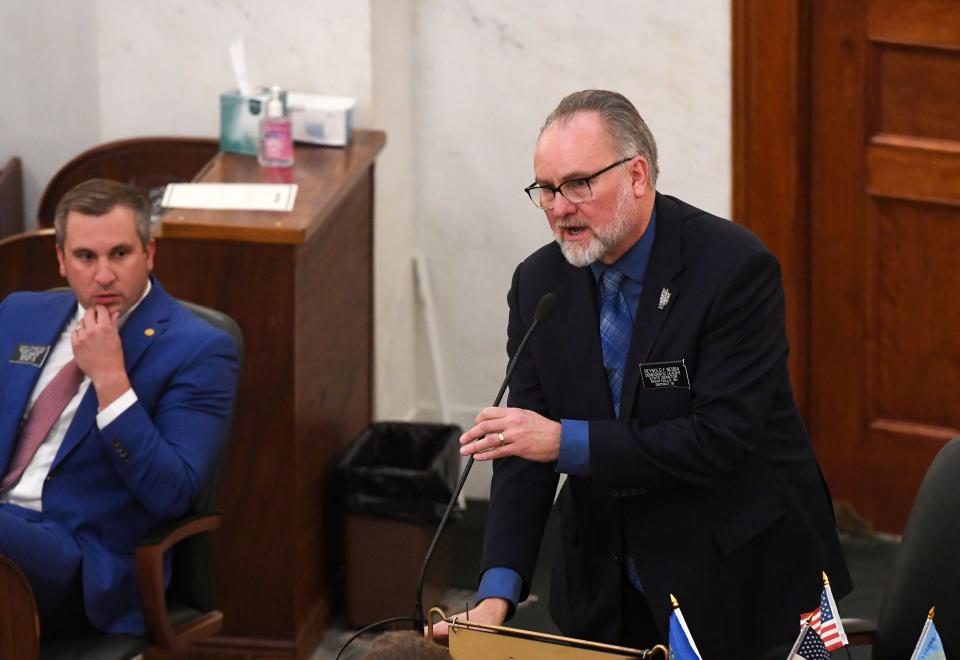
“It’s disappointing to me that something as basic as standing up for human rights isn’t worthy of a commemoration in the South Dakota Legislature,” he said.
Rep. Linda Duba (D-Sioux Falls) brought a bill this winter, HB 1092, that would’ve clarified marriage is between two people and not just “between a man and a woman,” as it currently stands in state law. She brought it after Congress passed the Respect for Marriage Act and figured it would make sense to align state statute with federal law.
“I figured it was about damn time we did it,” Duba said.
But her bill failed in committee.
Duba asked some of the legislators why they voted against her bill, and she said they told her they don’t agree with it.
“I understand you don’t agree with it, that’s fine, but it’s the supreme law of the land,” Duba said. “Am I going to bring it back again this year? Yes. Maybe I’ll get a different result. I doubt it.”
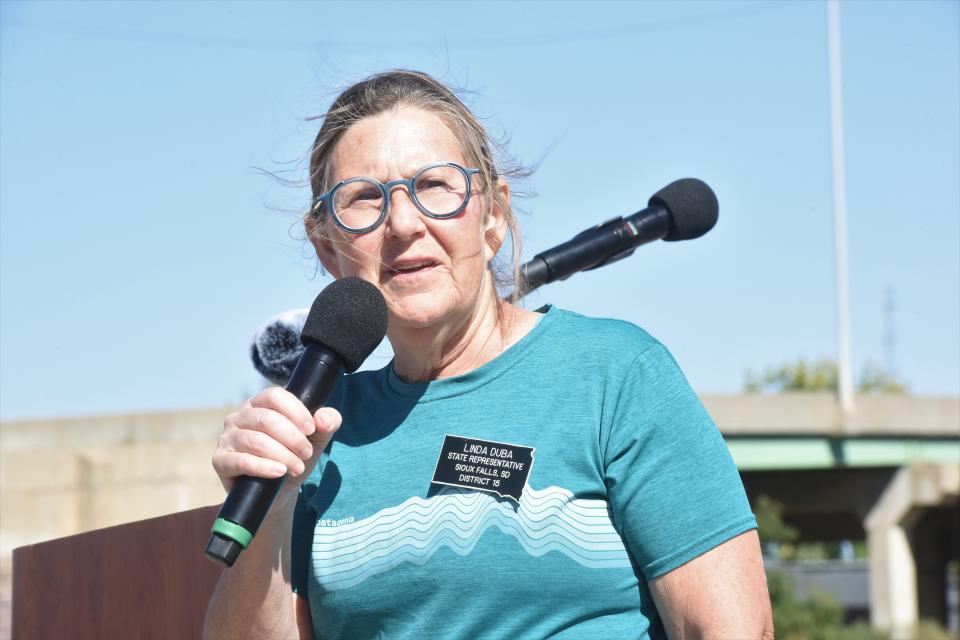
What protections does South Dakota have in place for LGBTQ+ residents?
The Transformation Project is one of more than 200 LGBTQ+ centers that has signed onto a statement taking a stand against hate and discrimination after 2023 saw a record number of anti-LGBTQ+ bills proposed across the U.S.
Jack Fonder, community health worker for the Transformation Project, said what he’d like to see in state statute is more protections for the LGBTQ+ community, and repeals of the sports ban and health care bans.
Fonder said a common problem he and others face in advocacy work is that advocates are working so hard to stop bad legislation, and then once it passes, they spend so much time helping people who are affected by it.
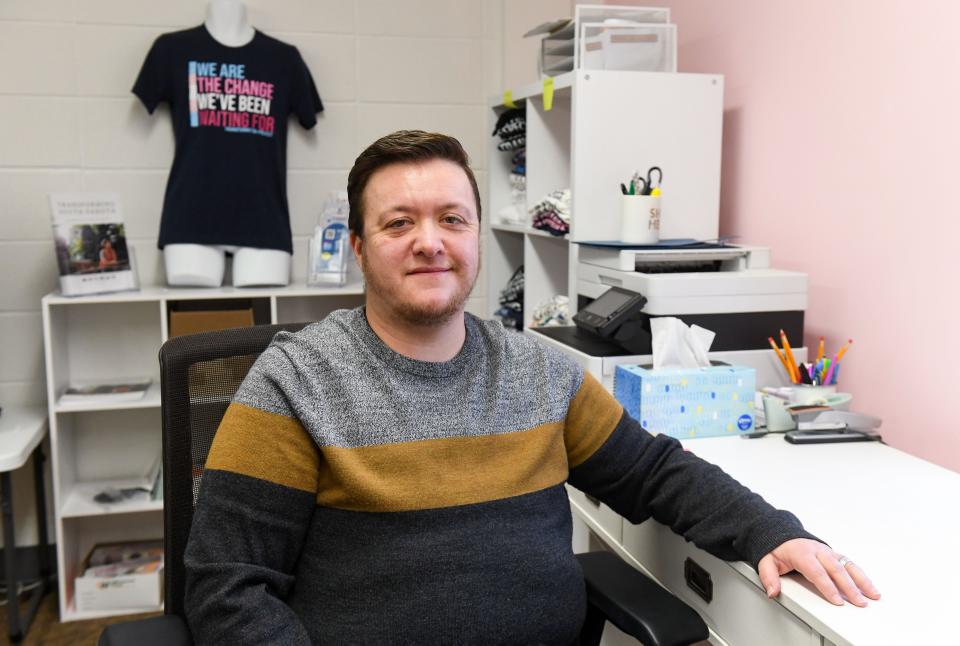
The state overall has a negative score in that department, according to South Dakota’s equality profile by the Movement Advancement Project, a nonprofit tracking equality policies across the U.S. According to MAP, the state has no nondiscrimination laws for employment, housing, public accommodations, credit and lending, or for state employees.
South Dakota does have some relationship and parental recognition laws, MAP states, but it also has negative broad religious exemption laws, laws and policies for LGBTQ+ youth, healthcare laws, criminal justice laws and policies, and more.
Changing any of the negative areas scored by MAP could bring South Dakota’s score up and make the state more safe and inclusive for LGBTQ+ and Two Spirit people.
For a city-by-city breakdown, the Human Rights Campaign’s latest municipal equality index — a ranking of cities and their LGBTQ+-inclusive policies — scored nine South Dakota cities on a ranking of 100 possible points, with Pierre at 0, Aberdeen and Mitchell at 12, Rapid City at 19, Spearfish at 26, Watertown at 27, Sioux Falls at 62, Vermillion at 77 and Brookings at 100.
On city-wide non-discrimination laws: Aberdeen, Mitchell, Pierre, Rapid City, Sioux Falls, Spearfish and Watertown scored 0 points. Vermillion scored 25 points and Brookings scored 30 points for having laws in employment, housing and public accommodations.
On the city as an employer: Aberdeen, Mitchell, Pierre and Rapid City scored 0 points. Brookings, Sioux Falls, Spearfish, Vermillion and Watertown scored 14 points for having non-discrimination laws in city employment. Both Brookings and Sioux Falls earned 6 points for also having trans-inclusive health benefits. Brookings scored 6 more points for having a non-discrimination ordinance for city contractors.
On municipal services: Aberdeen, Mitchell, Pierre, Spearfish and Watertown scored 0 points. Brookings, Rapid City, Sioux Falls and Vermillion scored 7 points for having a human rights commission and having a non-discrimination ordinance enforced by that commission. Brookings and Sioux Falls scored 5 points for having an LGBTQ+ liaison in the city executive’s office. Sioux Falls scored 2 bonus points for providing services to people living with HIV or AIDS.
On law enforcement: All cities but Pierre scored 12 points for reporting 2020 hate crimes statistics to the FBI. Brookings, Sioux Falls and Vermillion also scored 10 points for having an LGBTQ+ liaison or task force in the police department.
On city leaders’ position on LGBTQ+ equality: Aberdeen, Mitchell, Pierre, Rapid City and Spearfish all scored 0 points. Watertown scored 1 point, Sioux Falls and Vermillion scored 2 points, and Brookings scored 3 points for city leaders having pro-equality legislative or policy efforts. Watertown scored 0 points, Sioux Falls scored 4 points and Brookings and Vermillion scored 5 points for city leaders having a public position on LGBTQ+ equality. Both Brookings and Vermillion scored 2 bonus points for having openly LGBTQ+ city leaders.
Cities with lower scores could look to those with higher scores, like Brookings, for policies that would improve their standing on the HRC index.
More allies need to be visible supporters of the LGBTQ+ community
Susan Williams, executive director of the Transformation Project, said it would be easier for trans people to live and thrive in South Dakota if more people stood up for what’s right, and stood up for the community.
“What I’ve seen in South Dakota is privately, people will say, ‘I support what you’re doing,’ but publicly, they will not say this because they know that they will lose prestige, followers, standing or part of their community because of how they feel,” Williams said. “What we really need is for more allies to be visible and to make it known that they want trans people to have a normal life in South Dakota.”
Williams said she believes that from her experience doing advocacy work being in different communities and talking with people about the issue, most South Dakotans don’t agree with what’s happening to the LGBTQ+ community in Pierre.
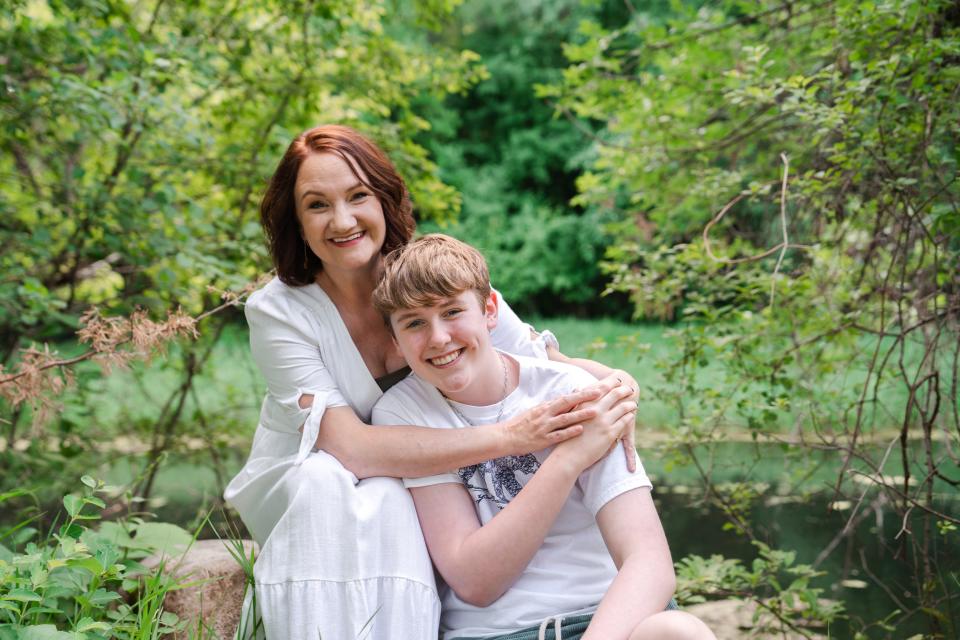
As a trans adult, Fonder said he also sees that, but it’s hard to remember.
“When you’re in situations where you feel like your state is against you, I can get how you feel that way,” he said. “We just need those people to speak up and be good allies.”
Elliott Morehead, a trans youth activist, said he’d like to see more young people get involved in policy making and community work for the disabled, queer and BIPOC (Black, Indigenous and People of Color) communities.
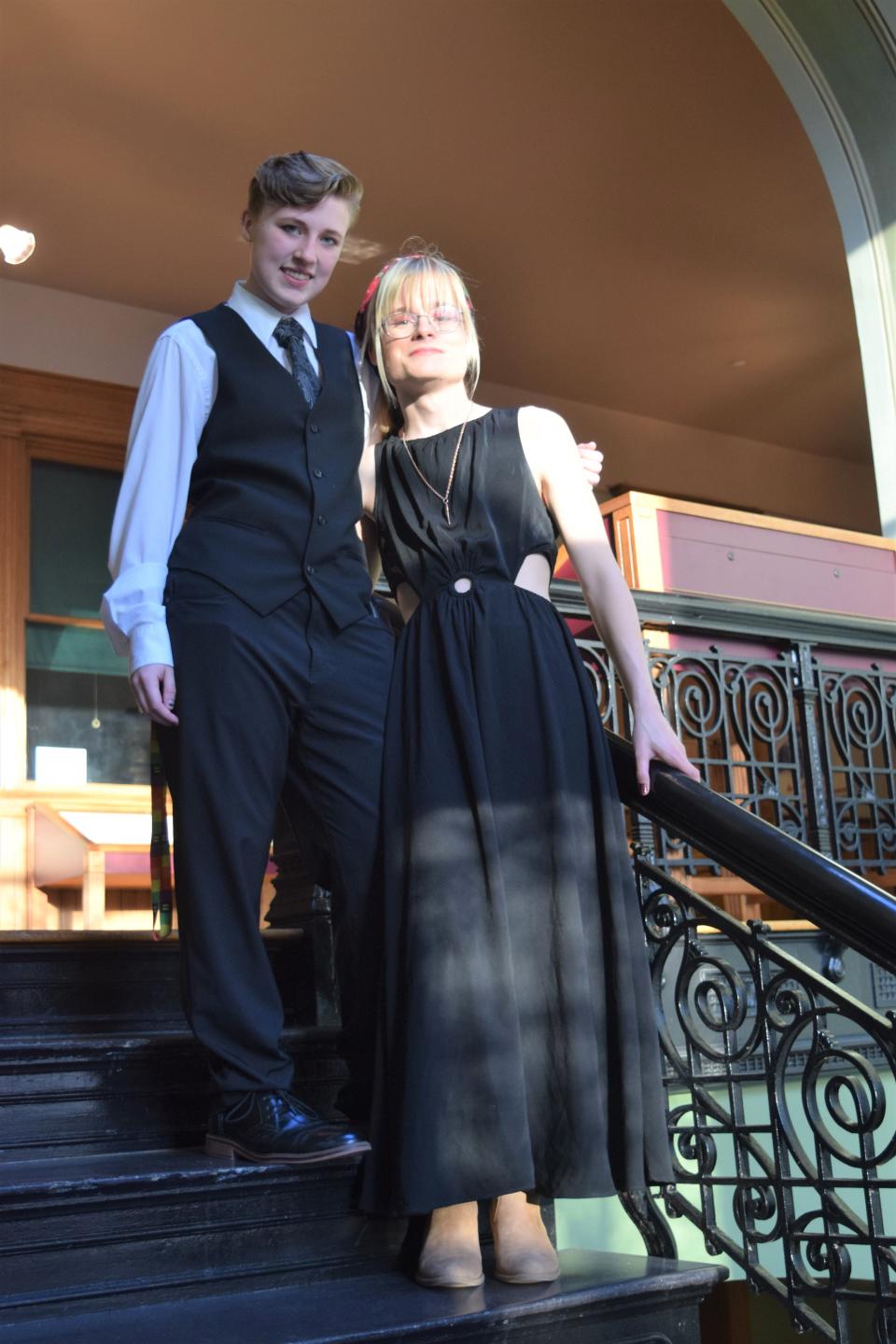
Duba said LGBTQ+ people shouldn’t be legislated about; rather, more people need to have a change in understanding, information, empathy and respect for this community.
People who speak up for trans kids and loved ones, like organizers with the Transformation Project, give Nesiba hope for the future of the state.
“Over time, these policies will change, and we will get to a point where members of our community are fully protected and recognized,” he said. “Until then, we will continue to speak out for and be allies to those in the LGBTQ+ and Two Spirit community.”
This article originally appeared on Sioux Falls Argus Leader: A decade of hate: What would make South Dakota safer for LGBTQ+ people?

